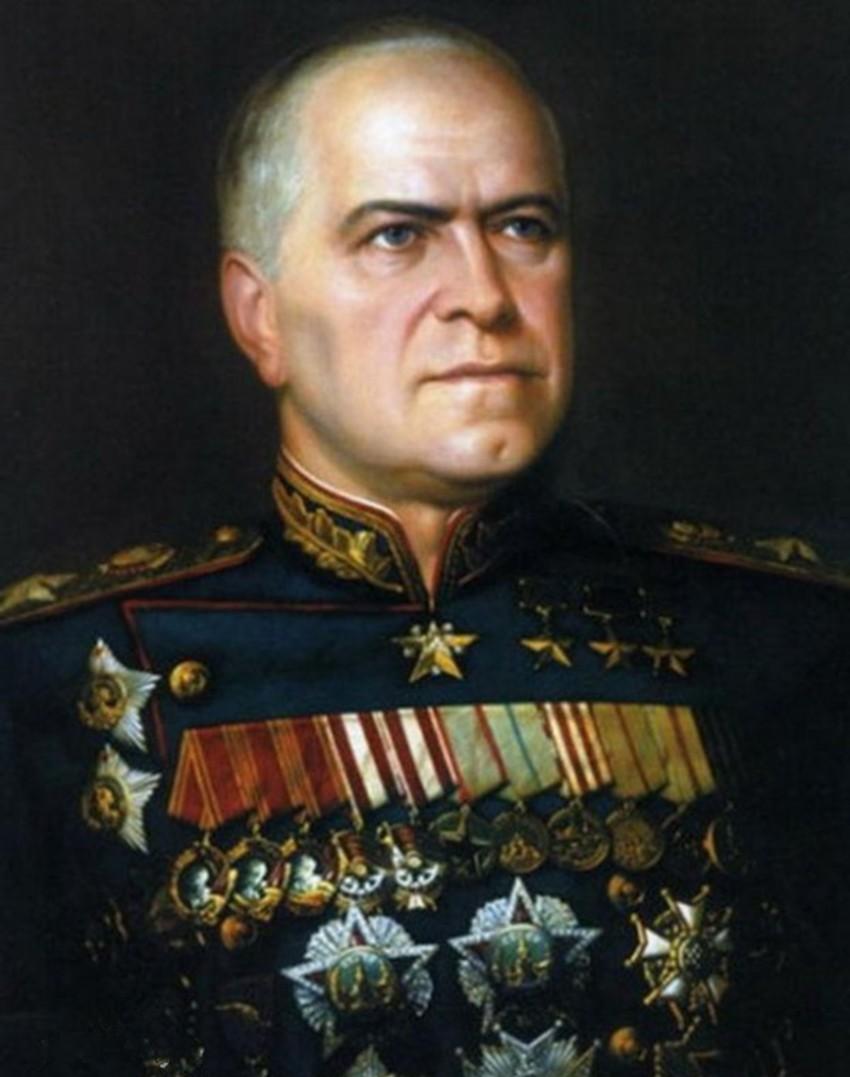Zhukov was a famous Soviet military and strategist, and one of the best generals recognized in The Second World War, who was awarded the honorary title of Hero of the Soviet Union four times, and commanded many key battles in his lifetime.

(Portrait of Zhukov)
However, in the eyes of many Westerners, Zhukov is only a marshal who can only rely on "man-sea tactics" to win, and military experts such as Rommel and Manstein who are good at winning more with less are not at the same level.
To understand this problem, we must first understand the meaning of "human sea tactics".
"Man-sea tactics" refer to tactics that exchange numbers and huge consumption for advantages in other aspects, and in the field of war, it usually refers to tactics in which the army does not have too many tactics and strategies, and only relies on the advantages of many people to finally achieve victory.
Judging from the data of world war losses in World War II, the Soviet army was indeed numerically superior in most cases, and the war losses were much higher than those of Germany. But did Zhukov really have no strategy in commanding the army?
Let's take a look at some of the representative battles commanded by Zhukov.
(Battle of Kiev)
In June 1941, during the German invasion of Kiev, Zhukov, as chief of the General Staff, advocated abandoning Kiev and retreating large forces to the other side of the Dnieper River to prevent being surrounded by German forces. But this idea contradicted Stalin's decision, and Zhukov was removed from his post by Stalin and transferred to the position of commander of the reserve army. It was also Stalin's obstinate behavior that led to the encirclement of the Southwestern Front by the Germans, and the Soviet Union lost a total of 660,000 people, which also proved that Zhukov's strategy was very correct.
In September 1941, Zhukov was sent to the besieged Leningrad. It took Zhukov a short time to stabilize the situation in Leningrad. He advocated a bloody battle with the Germans to the end, vowing to defend Leningrad to the death. In the end, the tenacious Soviet soldiers succeeded in stopping the Germans, and the Germans abandoned the idea of capturing Leningrad in a short period of time and instead sent troops to Moscow.
During the Battle of Moscow, Zhukov saw the weakness of his own defenses, and he quickly rebuilt the defenses, curbing the rapid advance of the German middle road, and successfully slowing down the German attack until it entered the cold Moscow winter.
After seizing the serious problems of german personnel and weapons supply, Zhukov disintegrated the German three-way attack on Moscow and destroyed nearly 500,000 enemy troops head-on, greatly damaging the German army's morale.
(Battle of Stalingrad)
During the Battle of Stalingrad and the subsequent Uranus Operation, Zhukov, together with Marshal Vasilevsky, successfully defended Stalingrad while also launching a powerful assault on the Germans from both flanks, annihilating 330,000 German troops.
In the following Belorussian campaign, Zhukov successfully coordinated four fronts to break through the enemy's defenses and completely drive the German army out of the Soviet Union and into the Great Counteroffensive.
The above battles were basically Zhukov's brilliant battles in World War II, and although the cost was heavy and he was wounded all over the body, Zhukov still used his excellent strategic thinking to lead the Soviet Union to victory in the war.
Compared with the German army, the Soviet army did not have any advantage, and it could even be said to be an absolute disadvantage. Whether it is the tactical quality of the soldiers or the sophistication of the weapons and equipment, they are far inferior to the German army. It was not easy to win the War against the German army.
Having said that, it is recorded in Sun Tzu's Art of War: "Whoever uses the method of soldiers, ten will encircle it, five will attack it, and if it is multiplied, it will be divided." "Fighting a war is not a boxer's single head, since it is inferior in all aspects and has a numerical advantage, why not use it?"
Zhukov took advantage of the numerical superiority of the Soviet Union to the extreme, successfully overcame many of his own disadvantages, and finally took Berlin and defeated Germany, he was an undoubted tactical master. The so-called "man-sea tactics" are just the Western world's deliberate smear of the Soviet Union.
(Reference: Memories and Reflections : Memoirs of Marshal Zhukov's War